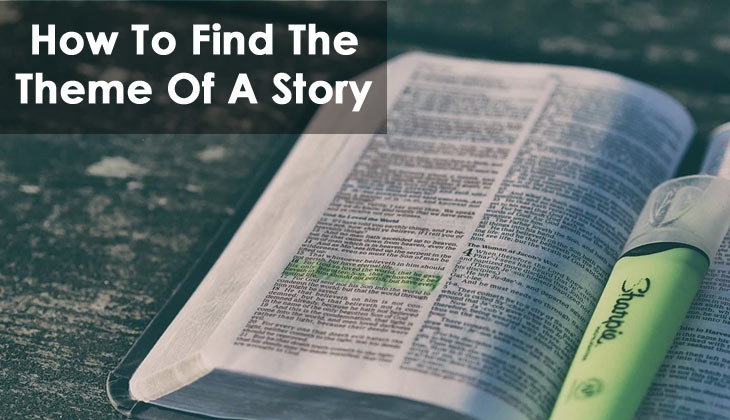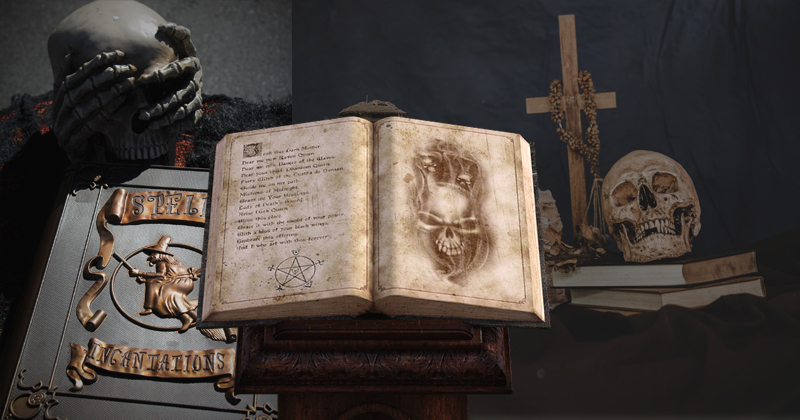
When any person is buying a book, be it online or from a nearby bookstore, that person always looks for their favorite theme first. Well, a theme of a book in general can be defined as the main idea or the focal point which is represented throughout the book. This can be seen in the narration and how the different components are interlinked with each other by the theme of the book. Like a book can be based on human psychology (theme) or another book on the ill effects of depression and stress (thematic representation of psychological behavior). But why is it important for a writer to know “How to find the theme of a story?”
Well, the answer lies in the fact that, if a writer knows how to find the theme of a story, then it will help him to write in a more precise way. As we put an example above, if you are writing about human psychology then the way an author will write the book will be different as compared to when he will be writing about the ill effects of depression and stress. Because one book has a broad and general theme whereas the other one is more specific. So the outcome (book) will be different in both cases.
Well, all mind doesn’t function the same way. So, similarly all writers have their own way to write a book. Some of the writers have a theme on which they write and others usually find their theme when they are rewriting their manuscript. The latter way is more common and natural where the writer finds its theme while rewriting his first draft as it gives him a more clear vision of the book about its theme.
So let’s now study “How to find the theme of a story?” here are the three basic steps that can guide you towards that goal:
1. What is the Story About?
Well, story is the backbone of the book as we all know and to find the theme of a story, one needs to understand the story well. The story is a tale of different characters interacting with each other during different settings, situations and then how they emote in those situations makes the story. So, the characters, the plot, conflicts, settings and style of the narration all helps in finding the focal point of the story which is referred to as the theme of the story.
2. What is the Meaning behind the Story?

Every theme has a different version like there are so many love stories in the market yet all of them convey different shades of love. So it’s important to know the meaning behind the book. How does the theme help in expressing the philosophy of the author?
3. What Writer wants to Give away with this Book?
Once you have identified the story theme, its meaning, then comes the question what message the writer wants to give to its readers. Example of message of the story Love conquers all; Faith can restore a broken person; Politics is about the money power; Help is a wonderful tool, etc.
How to Write the Theme of a Story?
Well, most people misunderstand the theme as a one word like romance, horror, comedy, etc but this is not the correct approach. So, let’s discuss now: How to write the theme of a story?
1. Start with a Universal Idea
Well, to write the theme of a story usually a writer starts writing with a very broad idea like horror, action, adventure, love, etc on which he wants to pen down his ideas.
2. Keep your Target Audience in the Mind
As every author/writer caters to a target audience every time he pens down a book. So when you are choosing a theme keep your audience preferences too. Like if a writer’s target audience belongs to comedy and youngsters then while writing the book he has to write according to that too.
3. Build Characters as per the Theme
If a writer decides to pen down an adventure story then he needs to develop his characters according to that broad idea. The character will involve lots of mind and physical games. A writer can do this by creating situations which bring out the theme of the story. Like in an adventure story there are always high octane drama and action scenes which keeps the readers glued to the story.

It also includes key points like using symbols to donate the theme of your story like gold represents money, flower represents love and happiness, etc. in fact many stories are still remembered with iconic symbols. Symbols help in representing complex features in a simpler way rather than explaining them with complex and meticulous words.
4. Weave your Theme Throughout the Narrative
It is very important that the theme is put across the narration of the story in such a way that it doesn’t hinder the pace of the story. narration should help in lifting up the different shades of the theme. Like if the theme of the story is romance then the narration should create that kind of situation that creates those emotions of love, warmth, passion and desire that are involved in romance.
5. Include Multiple Themes
If we see it closely then every theme has some kind of sub-themes. A book can never be written on one theme only although one theme can be predominant. There is always some kind of sub-theme running in the story. Well, these sub-themes also add another layer of interest in the story. Also helps in creating more interesting situations and more interactions between the characters. Sometimes the sub-themes enhance the main theme by adding more substance to it. For example, in a horror theme story if a sub-theme of anxiety (human psychology) is added to one of the character main characters then it can bring new shades of the characters and new situations in the story in such a case.
Also Read – A Quick Guide On Themes Of Literature
6. Do not Cage with the Theme
Well, it is important to write the theme of a story but it is not the only motive in mind. The motive is to put an interesting story on the theme a writer has chosen. go with your gut feeling even if you can experiment within the theme in a new format it will be a great achievement. Don’t lose the essence of your writing running behind the theme.
A book is all about the story and a story can be written well if the writer knows “How to find the theme of a story ?” As discussed above this can be done from the beginning of the writing of the book or after a writer is rewriting its manuscript. As we know the theme will help in conveying the philosophy of the author through the literary work he puts in the form of a book. Usually the moral of the story is equated with the primary theme of the story. But in certain cases, it is just the idea that creates a buzz in the audience to grab the book and read. So, in a nutshell, we can easily say that the focal point of the book is the theme of the story.






